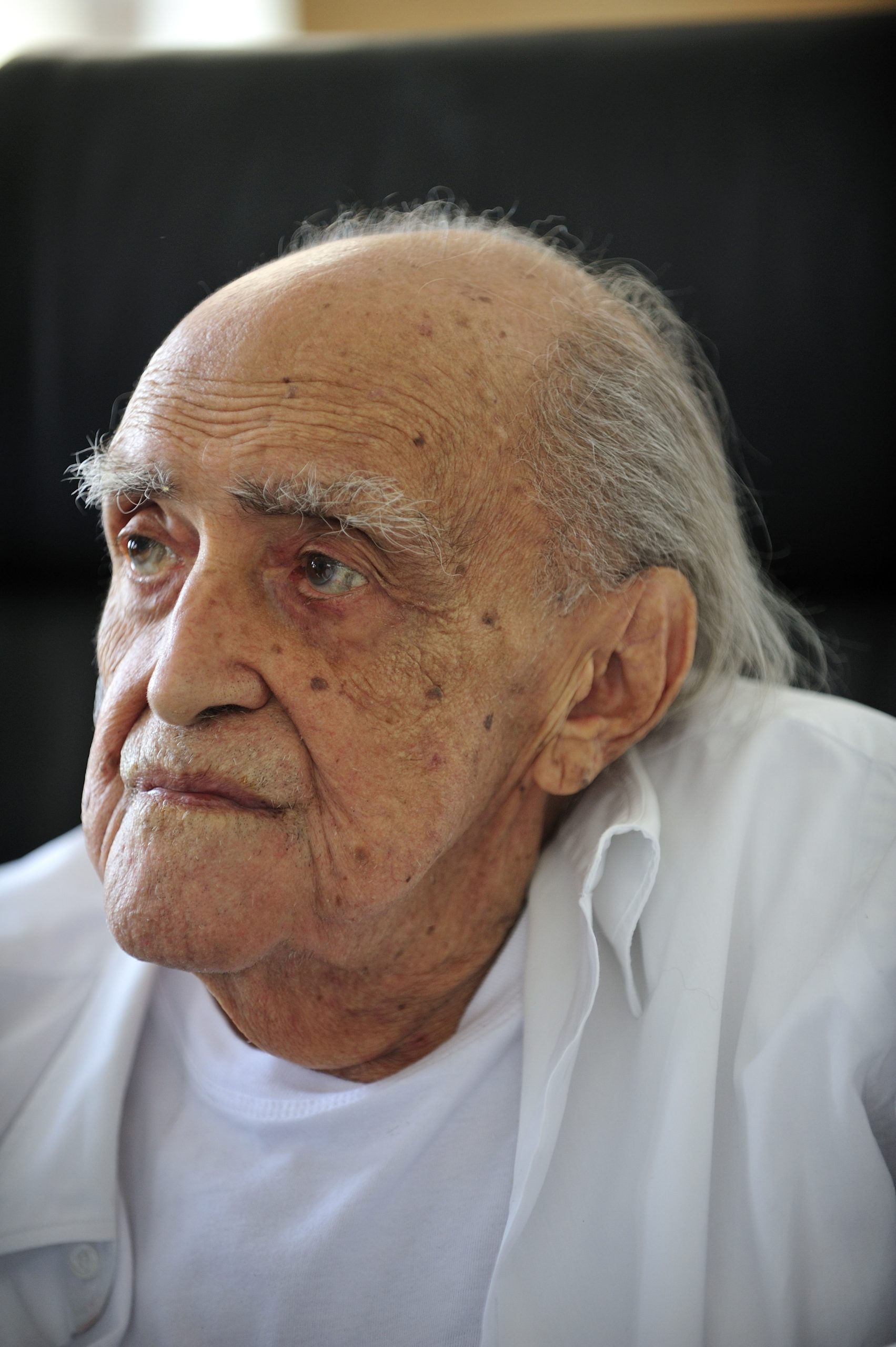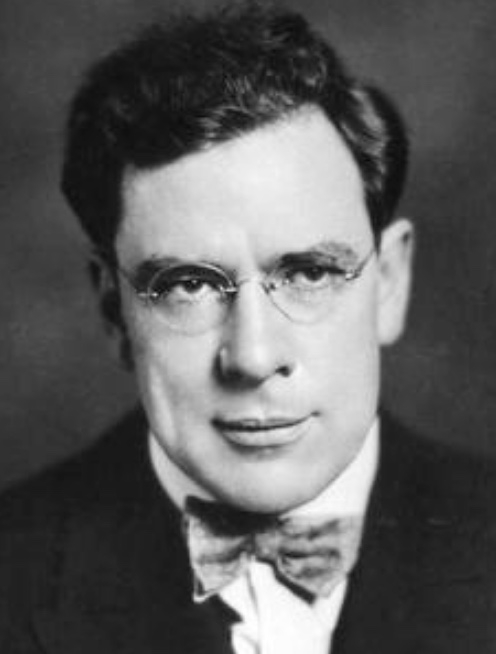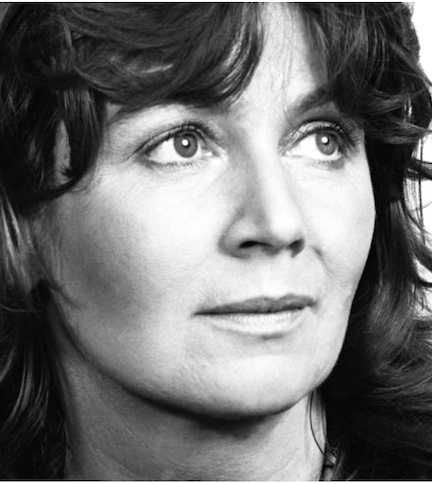December 15
Bill of Rights Adoption

On this date in 1791, the Bill of Rights to the U.S. Constitution was ratified.
“Congress shall make no law respecting an establishment of religion, or prohibiting the free exercise thereof; or abridging the freedom of speech, or of the press; or the right of the people peaceably to assemble, and to petition the Government for a redress of grievances.”
— First Amendment, Article I
Oscar Niemeyer

On this date in 1907, architect Oscar Niemeyer was born in Rio de Janeiro, Brazil. He was an artist and highly accomplished architect who designed the majority of the public buildings in Brasília, Brazil’s capital, in the 1950s. His works include Itamaraty Palace in Brasília (constructed in 1962), the Cathedral of Brasília (1970) and the Museum of Contemporary Art in Niterói (1996). He is often called Brazil’s greatest architect for his innovative modernist architecture. Active in politics as a socialist, he was forced into exile in France in 1964 when the military seized power in Brazil.
He was very public about his atheism but accepting of people with religious beliefs and designed churches and at least one mosque. “[I]n the end, that’s it — you are born, you die, that’s it.” (“Oscar Niemeyer: A Vida é um Sopro,” a 2007 documentary film)
In 1988 he was awarded the Pritzker Architecture Prize along with Gordon Bunshaft, making Niemeyer the first and only South American to be awarded the Pritzker. In 2007 he published his memoir The Curves of Time. Niemeyer was married to Annita Baldo from 1928 until her death in 2004, and they had a daughter, Ana Maria. He married Vera Lúcia Cabreira, his longtime secretary, in 2007 when he was 98. They lived in a house he designed in 1951. He died at age 104. Samba music played at his interment. (D. 2012)
“A church is something very beautiful. It is nice when people feel happy in it. But I am not a religious man. Look at us, and then at the infinity of space. We are rather small, insignificant creatures, wouldn’t you say?”
— Niemeyer, quoted in "Oscar Niemeyer: Legend of Modernism," eds. Paul Andreas and Ingeborg Flagge (1999)
Maxwell Anderson

On this date in 1888, dramatist James Maxwell Anderson was born in Atlantic, Pa., the second of eight offspring of Charlotte (née Stephenson) and William Anderson. The family moved often due to his father’s work as a Baptist minister.
A sickly child, Anderson read voraciously. After high school in Jamestown, N.D., he earned a B.A. in English literature from the University of North Dakota in 1911 and worked as a teacher and high school principal. Fired for making pacifist statements to students, he enrolled at Stanford University and received an M.A. in English lit in 1914.
He worked as a teacher and journalist for several years and was fired from several jobs for various reasons, including voicing outspoken views. He started a poetry magazine and wrote his first play, “White Desert,” in 1923, collaborating in 1924 with Laurence Stallings on the comedy-drama “What Price Glory?” It had a successful Broadway run and was adapted for the screen two years later.
Anderson’s long string of plays included the Tudor dramas “Elizabeth the Queen” (1930) and “Mary of Scotland” (1933), in which he inveighed against religious intolerance. “Winterset” (1935), inspired by the Sacco-Vanzetti case, won the 1935 New York Drama Critics’ Circle Award for Best Play. “High Tor” won the same award two years later. He was on the cover of Time magazine on Dec. 10, 1934.
He also had success as a lyricist and wrote the book for the 1938 Kurt Weill musical “Knickerbocker Holiday.” Its “September Song” became a jazz-pop standard. He wrote movie screenplays and several of his plays were adapted by Hollywood. Three versions of “Saturday’s Children” (1927) were made. “Anne of the Thousand Days” (1948) became a 1969 movie with Richard Burton and Geneviève Bujold as Henry VIII and Anne Boleyn.
His last successful Broadway play was 1954’s “The Bad Seed.” A contender for the 1955 Pulitzer Prize for Drama, it lost out to “Cat on a Hot Tin Roof.”
Anderson married high school classmate Margaret Haskett in 1911 in North Dakota. They had three sons, Quentin, Alan and Terence. His early 1930s’ affair with married actress Gertrude Higger led to a split with Haskett. Anderson and Higger had a long relationship but never married. She killed herself by inhaling car fumes in 1953. Their daughter Hesper was born in 1934. He married once more, to TV production assistant Gilda Hazard in 1954.
In a 1941 essay, he called the theater “a religious institution devoted entirely to the exaltation of the spirit of man. It has no formal religion. It is a church without creed, but there is no doubt in my mind that our theater, instead of being, as the evangelical ministers used to believe, the gateway to hell, is as much a worship as the theater of the Greeks, and has exactly the same meaning in our lives.”
Anderson died at home two days after suffering a stroke at age 70 in Stamford, Conn. (D. 1959)
“I have found my religion in the theater, where I least expected to find it, and where few will credit it exists. Yet it was in these godless nineteen-twenties that I stumbled upon the only religion I have. And I came upon it in the most unlikely and supposedly godless of places.”
— Anderson essay, "By Way of Preference: The Theatre as Religion" (New York Times, Oct. 26, 1941)
Sue Lines

On this date in 1953, politician and labor activist Susan “Sue” Lines was born in Perth, Australia, to Nancy (McCrae), a teacher, and James Lines. Her father was born in England, came to Australia at age 12 as part of a child migration scheme and worked as a baker, carpenter and builder after serving in World War II. Her maternal heritage is Scottish.
Lines held British citizenship by descent until renouncing it in 2013. After her parents separated, she became close to her stepmother Mary Davies. She earned a bachelor of education at Murdoch University in Perth and worked as a teacher and community and union organizer.
In 2002 she became national executive of the Labor Party, the main center-left political party (the Liberal Party is center-right). She served on the party’s national policy committee from 2007-09 and was appointed in 2013 to fill a vacancy in the 76-member national Senate. She was elected to a six-year term in 2016 and reelected in 2022.
As chair in 2018 of the Senate’s procedure committee, she led an inquiry into the current practice of starting sessions with the Lord’s Prayer. The Greens, the third-largest party, proposed ending the practice but the proposal failed. The prayer also opens the House of Representatives.
The practice calls for the president to recite the prayer preceded by “Almighty God: We humbly beseech Thee to vouchsafe Thy special blessing upon this Parliament, and that Thou wouldst be pleased to direct and prosper the work of Thy servants to the advancement of Thy glory, and to the true welfare of the people of Australia.”
The issue returned after Lines was elected Senate president when Labor prevailed in the 2022 federal election. She was the second woman elected to the position and the first from the Labor Party. The Senate procedure committee will again consider dispensing with the invocation.
Commenting on the inclusion of Aboriginal and Torres Strait Islanders in an advisory capacity legislatively, Lines told a reporter that “we’ve had almost every parliamentary leader applaud the diversity of the Parliament, and so if we are genuine about the diversity of the Parliament we cannot continue to say a Christian prayer to open the day.”
“Personally, I would like to see the prayers gone. I’m an atheist. I don’t want to say the prayers. If others want to say the prayers they’re open to do that. Personally I would like to see them gone but again it’s not something I can decree. It’s a view of the Senate.”
— Interview, The Australian (July 28, 2022)
Edna O’Brien

On this date in 1930, Josephine Edna O’Brien was born to Lena (Cleary) and Michael O’Brien in Tuamgraney in County Clare, Ireland. Edna’s family and nation were steeped in Catholicism, and she was educated at a boarding school run by the Sisters of Mercy, an order whose strict and often abusive style would come to be denounced in a government inquiry.
Her father had inherited wealth and land but due to drinking and gambling eventually frittered it away. He was not a happy drunk and could be abusive. What was her earliest reading memory in a household where literature was scorned? “The prayer books in our house, which included some of the most succinct and beautifully written parables of the gospels.” The book that changed her mind was Darwin‘s “On the Origin of Species,” she later said. “It dislodged much of my religious education.” (The Guardian, May 1, 2020)
O’Brien was licensed in 1950 as a pharmacist after working in one in Dublin while occasionally writing pieces for the Irish Press. Her first novel and the first in a trilogy, “The Country Girls” (1960), had autobiographical elements and was followed by “The Lonely Girl” (1962) and “Girls in Their Married Bliss” (1964). The trilogy details the lives of two women from their school days to disillusioned adulthood. They have a strict Catholic upbringing that comes into conflict with their sexuality and dependence on men.
O’Brien dedicated “The Country Girls” to her mother but said she did not read it. “She thought it was courting sin … but she kind of forgave me as she got older. … There was a lot of commotion. There were loads of people who wanted to lynch me.” (BBC, July 28, 2024)
“O’Brien was notorious because she was a ground breaker. In 1960, it was not okay for a woman to write about sexual awakening in the voice of a young girl, and it was not okay to have a go at the nuns at the same time. … When Sinéad O’Connor tore a picture of Pope John Paul II on ‘Saturday Night Live’ in 1992, her rallying cry was the continuation of a conversation O’Brien started. When Dexy’s Midnight Runners sang about Edna O’Brien, it was as part of a continuum from Sterne, Shaw, O’Casey, Wilde, Behan, and Beckett.” (Eclectica Magazine, Jan./Feb. 2013)
“O’Brien’s Ireland is ‘a land of shame, a land of murder and a land of strange sacrificial women,’ as she describes it in her short story ‘A Scandalous Woman,’ ” said her obituary. “She describes how paternal violence — sanctioned by the misogynistic power of the Catholic Church — is woven into the fabric of life. Violence against women is an ordinary, everyday occurrence, as is their propensity to be punished for their sins.” (New York Times, July 28, 2024)
Her novel “A Pagan Place” (1971) tells the story of a girl seduced by a priest. “Down by the River” (1997) is based on a true legal and moral battle in 1992, when a 14-year-old girl impregnated by her widowed father was taken by a woman to England for a legal abortion but returns home under pressure still pregnant.
“Girl” (2019), her last novel, was inspired by the kidnapping of schoolgirls by Boko Haram Islamists in Nigeria. She has also written plays, children’s books, essays, screenplays and nonfiction, mostly about Ireland. In 2018 she was appointed a Dame Commander of the British Empire for her services to literature. The award, similar to knighthood for males, was honorary because of her Irish citizenship. She was named a commander of the French Ordre des Arts et des Lettres in 2021 as “a committed feminist who offered a voice to women around the world” and “one of the greatest writers of the 20th century.”
She married writer Ernest Gébler in 1954, a month before the birth of their son Carlo. They had another son, Sasha, before divorcing in 1964 while living in London. Carlo later said his parents’ relationship turned volatile as his father became jealous of his mother’s success.
Asked by Philip Roth how she had “the freedom of mind” to be able to write after her tumultuous, repressive upbringing, O’Brien said: “First of all, I think love replaced religion for me in my sense of fervor. When I began to look for earthly love (i.e., sex), I felt that I was cutting myself off from God. By taking on the mantle of religion, sex assumed proportions that are rather far-fetched.” (New York Times, Nov. 18, 1984)
“Constantly negotiating her relationship with religion, she told [journalist] Cole Moreton that she felt ‘ambiguous’ about the afterlife.” (Tatler, July 30, 2024) She had chosen her final resting place to be near her mother’s family in a cemetery off the coast of County Clare. She died at age 93 in London after a long illness. (D. 2024)
“I think so, yes. I have the necessity to think there is a God, but not the God I was breastfed on — a more compassionate one. But, when faced with the horror we see on the nightly news, any sane person would wonder, where is God in this scenario? So I am very puzzled and divided by God.”
— O'Brien reply when asked if she is spiritually inclined despite her run-ins with the clergy. (The Guardian, Aug. 25, 2019)
